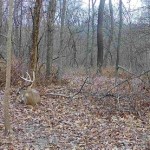What Is Bedding Plant Definition
Bedding plants are a type of plant that is grown for its ornamental value, and is typically used to add color and interest to gardens and landscapes. They are typically grown in containers or pots, and can be used to create a variety of different effects, from simple borders to elaborate displays.
Bedding plants are typically divided into two main categories: annuals and perennials. Annuals are plants that complete their life cycle within one year, while perennials live for two or more years. Annuals are typically grown from seed, while perennials can be grown from seed, cuttings, or divisions.
Bedding plants are available in a wide variety of colors, shapes, and sizes. Some of the most popular bedding plants include:
- Petunias
- Marigolds
- Impatiens
- Salvia
- Begonias
Bedding plants can be used to create a variety of different effects in the garden. They can be used to add color to borders, create focal points, or to fill in empty spaces. They can also be used to create different textures and patterns in the garden.
When choosing bedding plants, it is important to consider the following factors:
- The size and shape of the plant
- The color of the flowers
- The blooming period
- The growing conditions
Once you have chosen your bedding plants, it is important to care for them properly. Bedding plants typically require regular watering, fertilizing, and deadheading. They should also be protected from pests and diseases.
With proper care, bedding plants can provide years of beauty and enjoyment in the garden.

Bedding Plant Definition And Meaning Collins English Dictionary
Bedding Plants And Displays Rhs Gardening

Bedding Plants Carpet Garden History Consultant

Edging Groundwork And Dot Plants Edinburgh Garden School

Bedding Plants Carpet Garden History Consultant

Bedding Horticulture Wikipedia

Bedding Plants Carpet Garden History Consultant
Bedding Plants And Displays Rhs Gardening

Flowerbed Wiktionary The Free Dictionary

Greenhouse Floriculture Photoperiod And Bedding Plants Center For Agriculture Food The Environment At Umass Amherst








